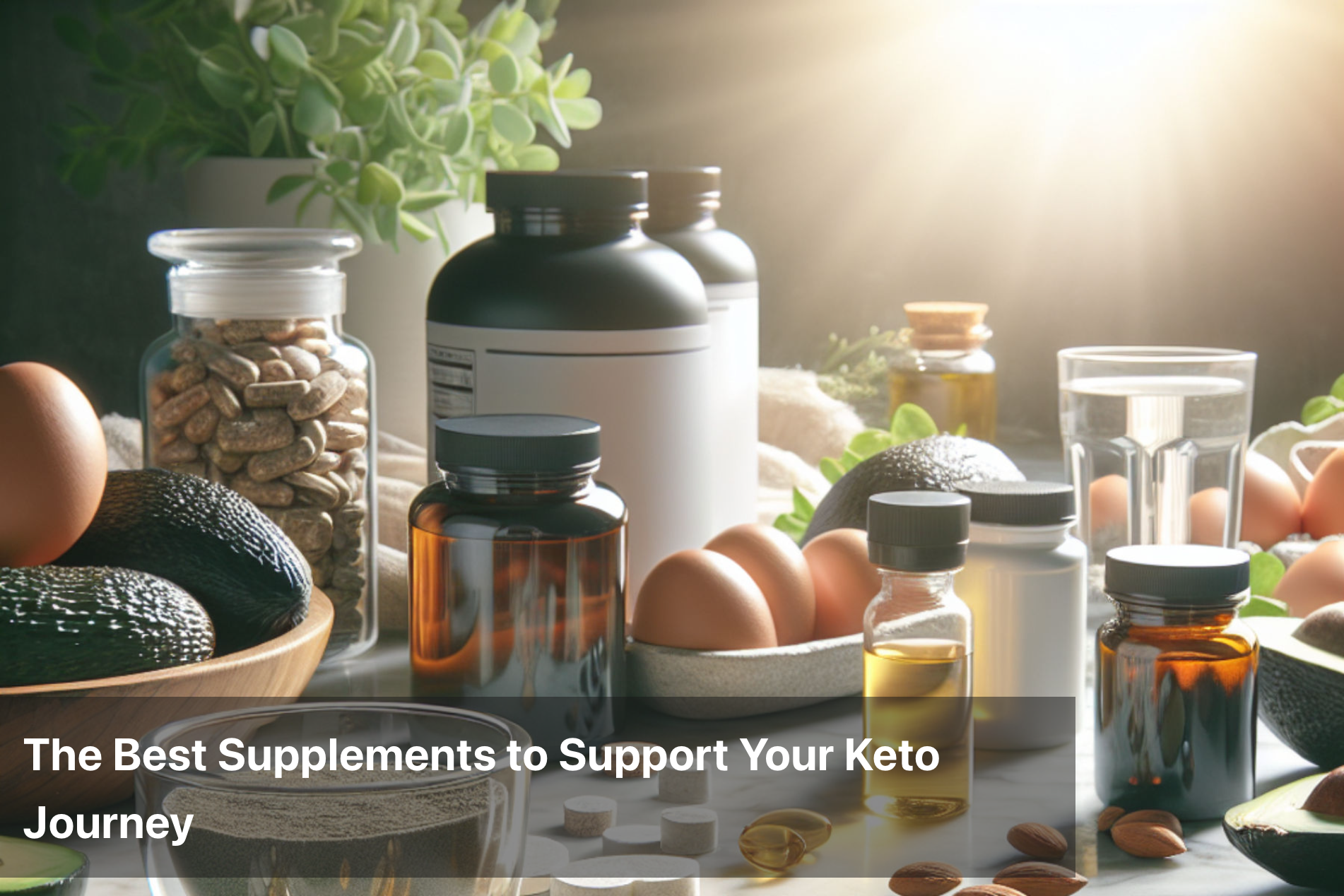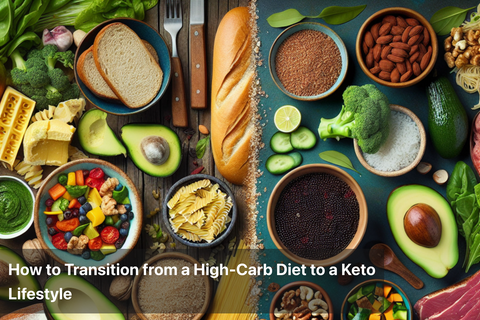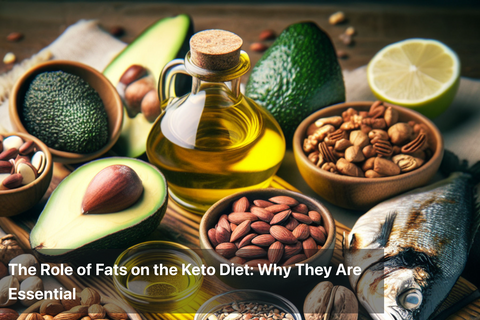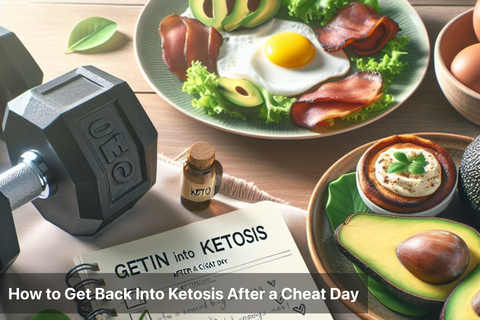
The Best Supplements to Support Your Keto Journey
The ketogenic diet is known for its effectiveness in promoting fat loss, balancing blood sugar levels, and improving mental clarity by shifting the body’s fuel source from carbohydrates to fats. By drastically reducing carbs and increasing healthy fats, the body enters a metabolic state called ketosis, where fat is converted into energy. While whole foods remain the foundation of a healthy keto lifestyle, certain supplements can enhance results, prevent nutrient deficiencies, and ease the transition—especially during the initial adaptation phase.
Because keto limits many carb-rich yet nutrient-dense foods like fruits, legumes, and some whole grains, deficiencies in certain vitamins and minerals can occur. Symptoms like fatigue, muscle cramps, low energy, and even mood changes often trace back to nutritional gaps or electrolyte imbalances. Understanding how supplements can support the keto journey helps ensure sustainability and better overall health outcomes.

How the Keto Diet Affects Nutrient Needs
When carb intake is reduced, the body excretes more water and electrolytes. This happens because insulin levels drop in ketosis, causing the kidneys to release sodium and fluids. While this is part of the metabolic shift, it can lead to a rapid loss of key minerals like sodium, potassium, magnesium, and calcium, especially in the first few weeks.
Additionally, the restricted food list on keto can result in reduced intake of certain nutrients, fiber, and antioxidants. Supplements help bridge these gaps without compromising ketosis.
Common Symptoms of Nutrient Deficiency on Keto
If supplements or food sources are not carefully planned, several symptoms may arise, including:
Fatigue or brain fog
Constipation
Muscle cramps or spasms
Dizziness or lightheadedness
Low exercise performance
Mood swings or irritability
These symptoms often appear during the “keto flu” period but can persist if nutrient intake isn’t addressed.
Essential Supplements to Consider on Keto
1. Electrolytes: Sodium, Potassium & Magnesium
Purpose: Prevent dehydration, muscle cramps, and energy crashes
These are the most crucial minerals lost through urine during ketosis. Replenishing them daily is key.
Electrolyte |
Sources |
Supplement Option |
|---|---|---|
Sodium |
Pink Himalayan salt, bone broth |
Electrolyte tablets or salt capsules |
Potassium |
Avocado, spinach, mushrooms |
Potassium citrate supplements |
Magnesium |
Almonds, pumpkin seeds, dark chocolate |
Magnesium glycinate or citrate tablets |
Adding a pinch of salt to water or drinking homemade bone broth can naturally restore electrolyte balance.
2. Omega-3 Fatty Acids (EPA & DHA)
Purpose: Reduces inflammation, supports brain and heart health
On keto, omega-6 intake may be higher due to nuts and oils. Omega-3s help balance this ratio and reduce inflammation.
Food sources: Fatty fish like salmon, sardines, mackerel
Supplement: High-quality fish oil or krill oil capsules
3. MCT Oil (Medium-Chain Triglycerides)
Purpose: Quick energy boost, supports ketone production
MCTs are fats rapidly absorbed and converted into ketones by the liver. They provide clean, quick-burning fuel, especially beneficial during workouts or fasting.
How to use: Blend into bulletproof coffee, smoothies, or drizzle over salads
Dosage: Start with 1 tsp per day to avoid digestive discomfort and gradually increase
4. Digestive Enzymes
Purpose: Aids fat and protein digestion, reduces bloating
Transitioning to a high-fat diet can strain the digestive system initially. Supplementing with lipase (fat-digesting enzyme) and protease (protein-digesting enzyme) helps optimize nutrient absorption and prevent indigestion.
Recommended: Take with high-fat meals or whenever bloating occurs
5. Fiber Supplements
Purpose: Supports gut health and regular bowel movements
Low-carb diets can reduce fiber intake due to limited fruits and grains. This can lead to constipation.
Fiber Type |
Sources |
Supplement Option |
|---|---|---|
Soluble fiber |
Flaxseeds, chia seeds, avocado |
Psyllium husk, acacia fiber |
Prebiotic fiber |
Asparagus, garlic, onions (in moderation) |
Prebiotic fiber powder or capsules |
Combining Lofoods’ keto atta or flour mixes with flaxseed or psyllium husk helps create fiber-rich rotis and baked goods that support digestion.
6. Collagen Peptides
Purpose: Improves skin, joints, nails, and gut lining
Collagen is the most abundant protein in the body and is beneficial for active individuals or anyone wanting to maintain joint health and skin elasticity.
How to use: Stir into coffee, smoothies, or soups
Bonus: Unflavored versions blend easily without affecting taste
7. Vitamin D3 + K2
Purpose: Supports bone health, immune function, and calcium absorption
Due to indoor lifestyles or sun avoidance, Vitamin D deficiency is common. On keto, it's essential for absorbing calcium effectively, especially if dairy is limited.
Best taken with: Fat-containing meals for better absorption
Keto Recipes Using Supplement-Friendly Ingredients
1. MCT Coffee (Keto Bulletproof Coffee)
Ingredients:
1 cup brewed coffee
1 tbsp MCT oil
1 tbsp unsalted butter or ghee
Stevia or erythritol (optional)
Instructions:
Blend all ingredients for 20 seconds until creamy. This energizing beverage boosts ketones and reduces hunger.
2. High-Fiber Keto Roti
Ingredients:
2 tbsp Lofoods keto atta
1 tbsp psyllium husk
Warm water, salt to taste
Instructions: Mix ingredients into a soft dough. Roll into rotis and cook on a pan. Ideal for pairing with paneer, egg curry, or low-carb sabzis.
3. Omega-3 Smoothie Bowl
Ingredients:
1/2 avocado
1 tbsp chia seeds
1 scoop collagen peptides
1/2 cup almond milk
1 tsp flaxseed
Ice cubes
Instructions:
Blend until smooth and top with shredded coconut or Lofoods keto granola.

Supporting Your Journey with Lofoods
Lofoods makes it easier to stick to keto with ready-made snacks, low-carb staples, and baking essentials that reduce prep time while meeting nutritional needs. Products like keto atta, low-carb namkeen, cookies, and bread pair well with supplements and allow for nutrient-rich meals that don't compromise taste or convenience.
Using Lofoods products in combination with the right supplements enhances your body’s ability to thrive in ketosis while staying energized, nourished, and consistent.
Summary
Supplements are not a replacement for real food, but on a ketogenic diet, they can serve as powerful allies in overcoming common challenges like electrolyte loss, digestive issues, and nutrient deficiencies. Incorporating the right supplements—such as electrolytes, MCT oil, omega-3s, and digestive enzymes—can boost energy, support performance, and ease the transition into ketosis.
When paired with high-quality ingredients and low-carb options from Lofoods, supplementation becomes part of a balanced, sustainable keto lifestyle that fuels your health goals every step of the way.
This Blog post is an initiative by Lo! Foods, to provide accurate and Nutritionist / Doctor approved information related to Health. Lo! Foods is India's leading brand for Everyday Functional Foods. Foods designed for specific Health conditions or Needs. Lo! Foods also runs India's largest range of Low Carb Healthy Cloud Kitchens, under the brand names of Lo!, ProteinChef, ATH (All Things Healthy) and DiabeSmart.









Leave a comment
Your email address will not be published.